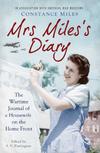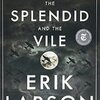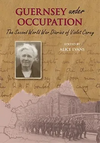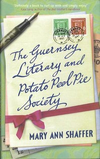There's nothing surprising about what's happening today because it's a repetition of what happened during the Second World War. It's the same program: to make people suffer. The PTB have no imagination, we know that. They're repeating themselves, like little robots.
I read a lot about the Home Front in Britain to learn how people experienced the hard hand of the PTB in terms of prices, lack of food, restrictions, loss of jobs, closure of factories and small shops and of course when the Germans bombed Britain the immense suffering of thousands of people who lost everything. Not forgetting how the PTB also had total contempt for the soldiers, who suffered from the lack of calories and so many other things. Propaganda, social engineering, lies in the media, everything we are experiencing now was already experienced by the British in 1941 and throughout the war, and everywhere else.
There was a shortage of everything in the shops, and there was absolute control over the entire population, at every level. Reading about the Home Front is a lesson to be learned from the experience of others, a reflection on how war (and we are at war) is a game for the PTB, an experiment because once again we are rats for them, in a laboratory.
Reading about the Home Front is instructive because it's a mirror of what's to come. Every time I go into a shop I cringe to see how high the prices have risen, how shameful it is, whether in 1941 or now, to treat people in this way, with contempt and almost hatred. There's no denying that they want to make us suffer and feed off that suffering.
Reflecting on the Home Front period is essential to prepare ourselves mentally for what is to come, and also to communicate in some way with the experience of others, which is educational, fascinating and rich.
There are many accounts of the Home Front, especially diaries written by women. I'm currently reading one that's one of the most interesting, because it deals with the situation on several levels: economic, social, political and military and personal. It's perhaps one of the hardest books because it lets us see what war is, and the tragedy the world was going through at that time.
I am reading this book, now.

I read a lot about the Home Front in Britain to learn how people experienced the hard hand of the PTB in terms of prices, lack of food, restrictions, loss of jobs, closure of factories and small shops and of course when the Germans bombed Britain the immense suffering of thousands of people who lost everything. Not forgetting how the PTB also had total contempt for the soldiers, who suffered from the lack of calories and so many other things. Propaganda, social engineering, lies in the media, everything we are experiencing now was already experienced by the British in 1941 and throughout the war, and everywhere else.
There was a shortage of everything in the shops, and there was absolute control over the entire population, at every level. Reading about the Home Front is a lesson to be learned from the experience of others, a reflection on how war (and we are at war) is a game for the PTB, an experiment because once again we are rats for them, in a laboratory.
Reading about the Home Front is instructive because it's a mirror of what's to come. Every time I go into a shop I cringe to see how high the prices have risen, how shameful it is, whether in 1941 or now, to treat people in this way, with contempt and almost hatred. There's no denying that they want to make us suffer and feed off that suffering.
Reflecting on the Home Front period is essential to prepare ourselves mentally for what is to come, and also to communicate in some way with the experience of others, which is educational, fascinating and rich.
There are many accounts of the Home Front, especially diaries written by women. I'm currently reading one that's one of the most interesting, because it deals with the situation on several levels: economic, social, political and military and personal. It's perhaps one of the hardest books because it lets us see what war is, and the tragedy the world was going through at that time.
I am reading this book, now.




